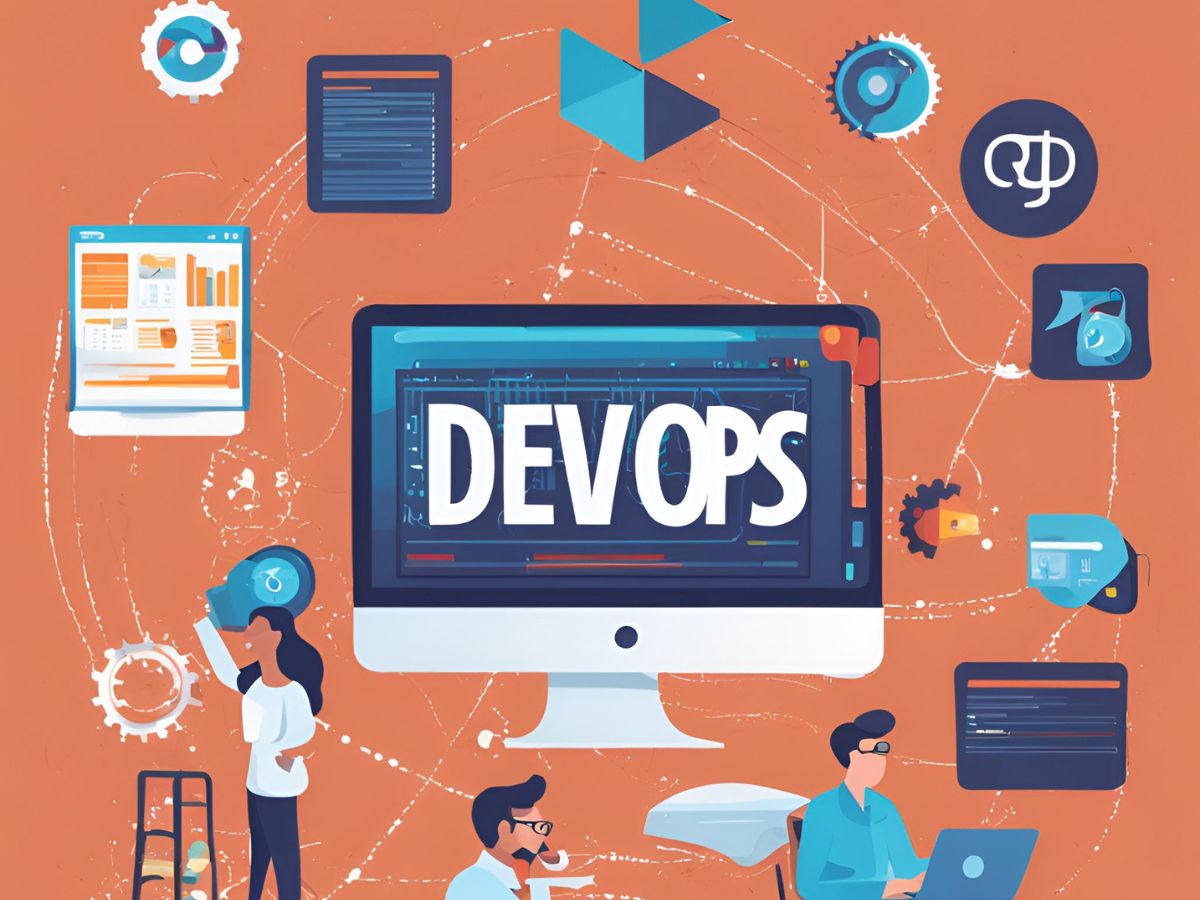In this modern era of the digital world, we have become dependent on the latest software testing trends. In this age of digitalization, DevOps is one of the most popular and successful software development operations that organizations use today. The advantages of using DevOps include Faster, better, and more reliable product delivery. Faster issue resolution and reduced complexity. Greater scalability and availability. According to Researchers Review, most companies around the world now identify its essential value, with more than 80 percent of users actively adopting it, whether they are tech firms or large organizations.
If we dive deep into this matter, DevOps, alongside the other emerging technologies, is poised for further sector evolution. The growth in the adoption of DevOps sets the benchmark for 2024 to be an important year for the success of DevOps, by using the latest tools and the trends that help in shaping the landscape of software testing not only for 2024 but in the coming future. The specifics of developments are not only uncertain, but it is also an exciting time to guess what lies ahead in the future for DevOps.
Let us narrow the focus to the latest trends which will help to reshape and influence this sector in the year 2024 and beyond.

Exploring How Autonomous Operations is Shaping Future.
The integration of Artificial Intelligence has given a boost to the need of greater automation along with autonomous operations capabilities. The team of expert professionals helps to leverage Kubernetes’ portability for easy application deployments across on-prem and cloud environments. The scalability will enable to management of the huge workload and orchestration needs for the businesses. The employment of Machine learning along with data-driven intelligence with many DevOps processes from test automation helps release the decisions. The machine learning algorithms enable engineers to enhance the performance of processes, such as power capabilities such as auto-healing incidents, smarter test case selection, identifying bottlenecks, and identifying the root cause of issues.
The use of AI-enabled systems can boost self-healing, auto-remediate issues with the solutions, optimize capacity, and do not require efforts from human testers. Though the involvement of the human testers remains critical, the goal of “NoOps” is to gain momentum. This enables businesses to oversee the key pain points which will help to manage complex, large-scale systems.
Key Tools Which Each DevOps Tool Must Have.
It is crucial to Choose the tools that are critical for the successful implementation of DevOps. Below are some of the most popular tools that are used across various stages of the DevOps lifecycle:
- Git: Git most popular version control system, which enables teams to collaborate on code with ease.
- CI/CD: The continuous delivery, of code changes which are automatically built, tested, and prepared for a production release.
- Jenkins: It is a popular open-source automation server for building the CI/CD pipelines.
- GitLab CI: Integration of CI/CD pipelines with the help of the GitLab ecosystem.
- CircleCI: The cloud-based CI/CD tools are known for their speed and flexibility.
- Configuration Management: DevOps configuration is the evolution of automation of the systems administration role, along with bringing automation to infrastructure management and deployment.
- Ansible: Ansible is an open-source automation tool that helps in the configuration management and deployment of the apps.
- Puppet: Puppet helps the testers to Automate the configuration of infrastructure and applications.
- Chef: It helps to manage infrastructure as code and automates deployment.
- Containerization and Orchestration:
- Docker: This platform is used to develop, ship, and run applications in containers.
- Kubernetes: It is an orchestration tool that is used to manage containerized apps across clusters of machines.
- Monitoring and Logging: The developers use log monitoring technology to gather, analyze, and understand the network performance information while monitoring logs continuously as they are in the process of creation.
- Prometheus: Prometheus is another open-source monitoring and alerting toolkit.
- Grafana: A tool that is used to create dashboards and visualize the key metrics.
- ELK Stack (Elasticsearch, Logstash, Kibana): It is a powerful suite used for logging and analytics.
How You Can Implement DevOps in Your Organization
Implementation of DevOps requires a cultural shift within the organization, along with the adoption of the right practices and tools. Here are some steps to consider before getting started:
- Start Small: Begin your pilot project to demonstrate the value of DevOps practices. Focus on automating simple processes and gradually expand.
- Build Cross-Functional Teams: DevOps thrives on collaboration. Ensure that your teams are composed of both developers and operations personnel who work together towards common goals.
- Invest in Automation: Identify repetitive tasks and invest in automating them. It includes CI/CD, provisioning of the infrastructure, and software testing.
- Foster a Culture of Continuous Improvement: DevOps is not limited to one-time effort. But it encourages the teams to continuously monitor and asses the processes, learn from failures, and it uses the data for improvement.
- Measure Success: Using metrics like deployment frequency, which lead time for changes, and mean time to recovery (MTTR) to measure how effective the DevOps practices are.
The Future of DevOps for Organizations
DevOps has a bright future because it prioritizes automation, security, and efficiency at its core. The evolution of technologies such as cloud computing, machine learning, and artificial intelligence will further integrate DevOps practices into software development and operations.DevSecOps’s ascent will guarantee that the security factors can be integrated from the outset of development, leading to safer applications with quicker releases. It is also assumed that loco and code platforms will be integrated into the DevOps tool kit, allowing faster development cycles. Organizations will adopt multi-cloud and hybrid cloud strategies to meet the rising demands more organizations are adopting DevOps, and the demand for DevOps will increase. Hence, the demand for DevOps Engineers gets increased automatically and after all these, we can say, the future is very promising for this role. These Engineers lead the list of in-demand positions, with more than 65% of companies hiring more Engineers.
Conclusion
Thus we can conclude that the latest trends are shaping the landscape of DevOps with advancements in automation, artificial intelligence, and machine learning. In upcoming years more and more will continue to integrate DevOps practices and gain benefits like enhanced overall performance through faster release, and more reliable and efficient problem-solving. The significant shift towards automation, security integration and collaborative practises highlights the importance for organizations to prioritize these key elements to enhance their overall operational efficiency. Focusing on DevOps will help organizations to thrive in this competitive digital world.
FAQ
Does DevOps need coding?
DevOps involves basic knowledge of coding, but it’s not primarily about writing code. It’s more about enhancing the processes, collaboration, and automation in software testing and IT operations. Coding is important to create automation scripts and tools.
Is DevOps a good career?
There is a huge demand for Engineers who have proven efficiency in DevOps. The salaries of DevOps engineers depend on the engineering skillsets of the Engineer. Salaries can greatly vary on the basis of experience and location, but the average annual salary of a DevOps engineer is around ₹7,40,000 in India.
Is DevOps it or software?
DevOps is a set of practices, tools, and a cultural philosophy that helps to automate and integrate the processes between the software development and the IT teams. It helps to emphasize team empowerment, cross-team communication and collaboration, and technology automation.







